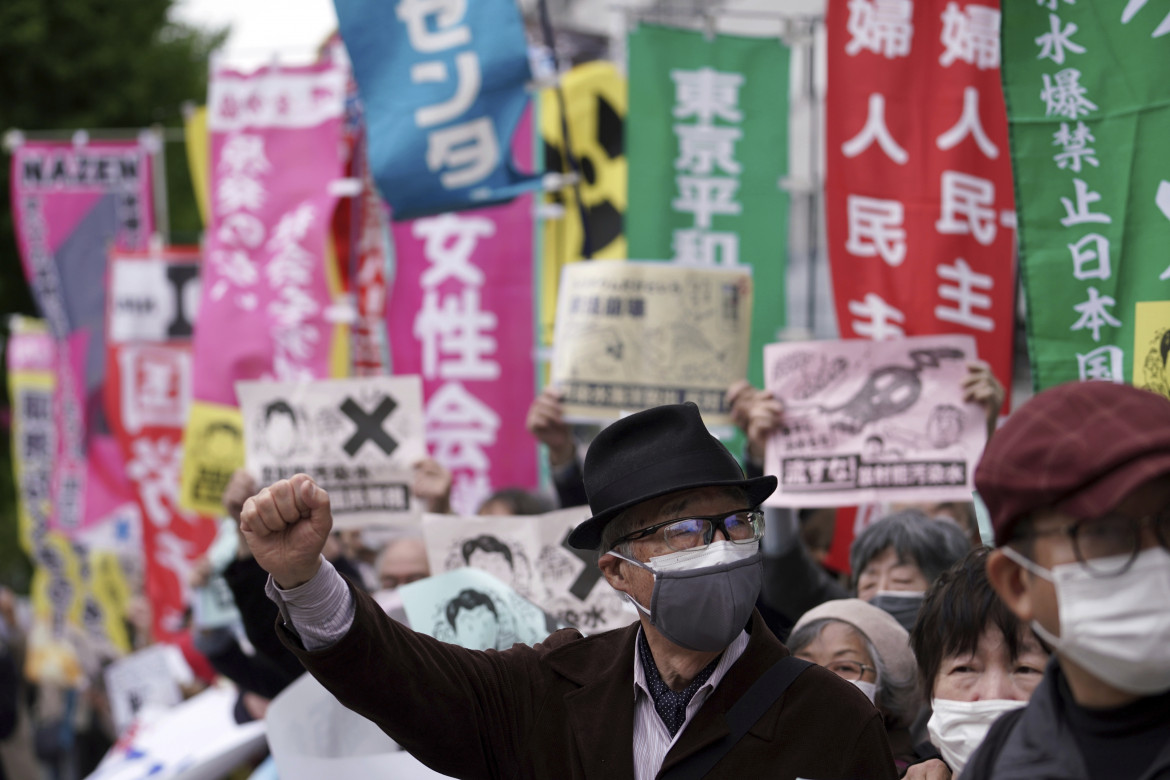Analysis
Japanese are shocked by the decision to dump Fukushima waste into the Pacific
Tepco will spill 1.25 million tons of contaminated liquid into the ocean. First the wastewater will be filtered to safe levels, a plan supported by atomic energy experts. But China and South Korea called it ‘irresponsible.’

In September 2019, Japan’s former environment minister, Yoshiaki Harada, had announced that Tepco, the operator that runs the Fukushima plant, would consider the option of dumping contaminated water from the nuclear site into the Pacific Ocean. A few years later, and despite a new Prime Minister, Yoshihide Suga, the project is becoming a reality.
The Japanese government has approved the discharge into the Pacific Ocean of more than 1.25 million tons of contaminated water, stored in more than a thousand tanks, previously used to cool the molten nuclear fuel in Reactor 1 of the Fukushima Daiichi plant. According to the central government, the operation will begin in about two years, while the entire process is expected to take decades. The official confirmation came exactly ten years after the March 2011 Fukushima disaster, triggered by a massive earthquake and subsequent tsunami.
The Suga administration has emphasized the expected schedule of the start of the operation to reassure the Japanese population and the governments of neighboring countries: they are saying there will be enough time to ensure the proper process of filtering and dilution of the contaminated water before it is dumped into the ocean. The Tokyo government, trying to put an end to the criticism about the environmental impact of the decision, stressed the necessity of the measure adopted. Tepco expects that by the fall of 2022, the tanks will reach the maximum allowed capacity of 1.37 million tons, based on the 140 tons of contaminated water produced daily for the plant’s upkeep.
But before being released into the sea, the wastewater will be treated through a purification system, ALPS, which removes most of the radioactive material except tritium, a hydrogen isotope considered not very dangerous to the human body if absorbed in small amounts.
According to the plan of the Japanese government, the tritium will be diluted to a concentration of 1,500 becquerels per liter, far less than the Japanese safety standards (60,000 Bq/liter) and those required by the World Health Organization (10,000 Bq/liter). One of the supporters of Premier Suga’s plan is the International Atomic Energy Agency, which confirms that this process to dispose of wastewater has also been adopted by nuclear plants around the world.
However, these explanations are not enough to reassure public opinion, which for years has harbored mistrust towards the measures of the government and the controversial actions of Tepco.
The decision has been met with the strong opposition of fishermen, who are seeing the efforts of the last ten years to restart the local fishing industry come to nothing: despite the funding provided by the government to ensure the safety of fishing off the shore of the Fukushima prefecture, workers in the sector believe that there will be irreparable damage to their image and a further decline in turnover, already reduced by 20% in the last decade. Greenpeace Japan is supporting the demands of the fishermen and has strongly condemned the executive led by Premier Suga, who “has once again disappointed the people of Fukushima.”
But the announcement of the Japanese government also caused the irritation of neighboring countries, starting with China and South Korea. Beijing, concerned about public and environmental safety, has called Japan’s failure to consult other countries “extremely irresponsible.” And developments are possible that might undermine the already-compromised diplomatic relations between China and the U.S.
U.S. Secretary of State Antony Blinken applauded the transparency of the Japanese government in the management of the issue, showing support for the plan adopted by Suga. But the spokesman for the Chinese Foreign Ministry, Zhao Lijian, called for Washington, “always attentive to environmental issues,” to remain impartial.
South Korea, which strongly opposes Tokyo’s decision, summoned the Japanese ambassador to Seoul, Koichi Aiboshi, to lodge a formal protest, while a demonstration against Suga’s government was held in front of the Japanese embassy.
Originally published at https://ilmanifesto.it/in-mare-lacqua-di-fukushima-lannuncio-shock-di-tokyo/ on 2021-04-14
